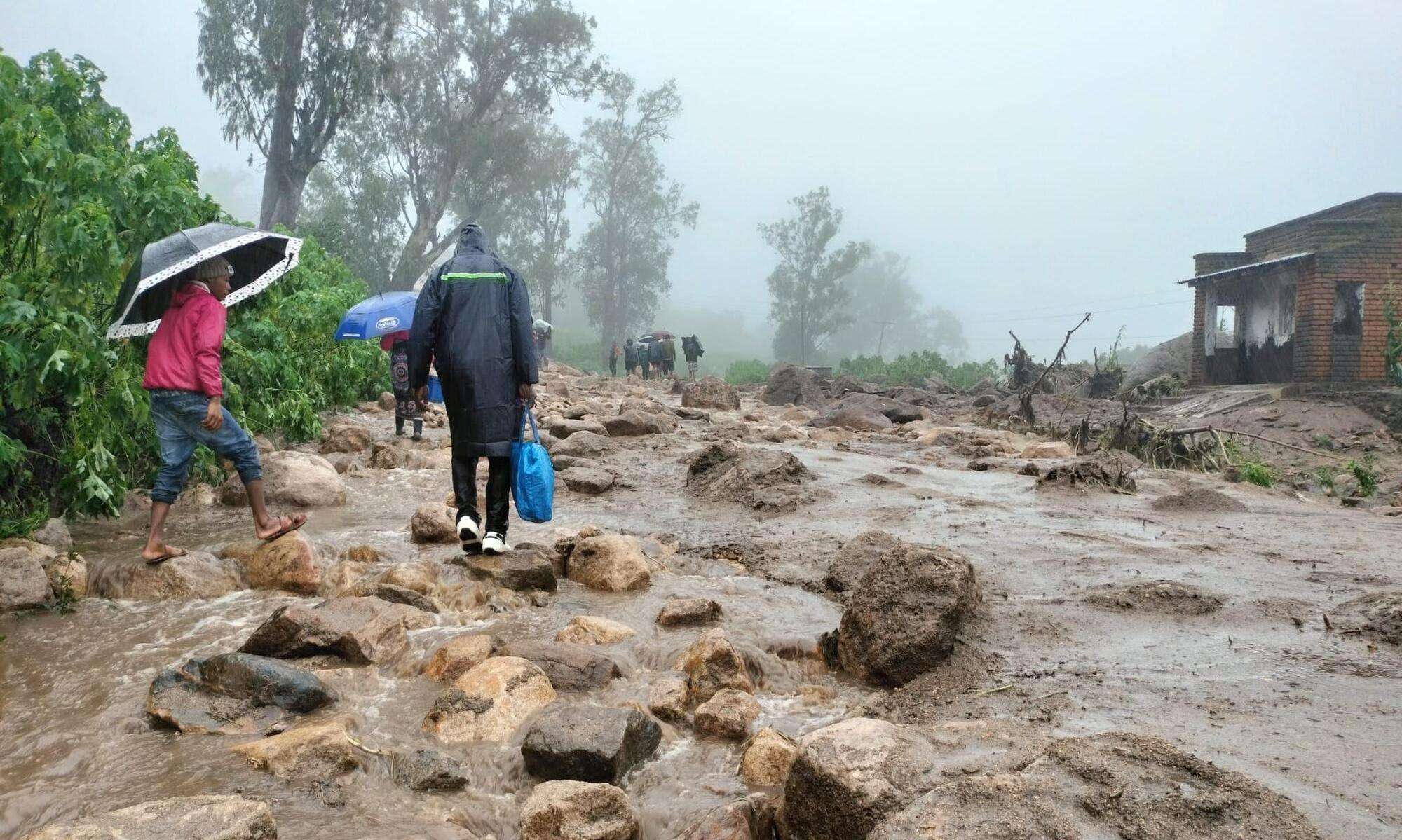NEW YORK/BLANTYRE, MARCH 23, 2023—Roads, bridges, and critical infrastructure remain significantly damaged a week after Cyclone Freddy hit southern Malawi, leaving tens of thousands of people cut off from health care, said the international medical humanitarian organization Doctors Without Borders/Médecins Sans Frontières (MSF) today. This cyclone was the most intense cyclone ever recorded by weather stations and one of the deadliest climate-related events in Malawi to date, killing more than 500 people.
“Entire villages have been engulfed by landslides and mudslides, and flash floods caused by torrential rains have washed away houses, roads, and bridges,” said Rasmane Kabore, MSF emergency coordinator in Malawi. “Tens of thousands of people in some of the country’s southern districts now find themselves cut off from access to health facilities, which have either been destroyed or are no longer reachable due to the cyclone’s impact on roads.”
MSF began responding to people’s medical and humanitarian needs in and around Blantyre city immediately after the cyclone hit on March 12. Teams recently started to provide support and assess the medical and non-medical needs of people in some of the approximately 50 displacement camps that have been set up around the city. MSF was able to mobilize quickly because it has been providing screening and treatment in Blantyre for cervical cancer since 2018.
“MSF teams supported Blantyre’s Queen Elizabeth Central Hospital through the donation of medical supplies and the allocation of staff to treat the wounded and carry out orthopedic surgeries,” said Guilherme Botelho, MSF emergency project coordinator. “After visiting some of the camps in Blantyre district—located mostly in municipal buildings such as schools—we are now providing clean water and chlorine, rehabilitating water networks, emptying latrines, and distributing non-food items such as blankets, firewood, and cooking equipment.”

How climate change impacts health—and what we need to do about it
Read moreMSF teams have also begun responding in some of the hardest-hit districts of Malawi outside of Blantyre, including Phalombe, Mulanje, Chikwawa, and Nsanje. The southeastern districts of Phalombe and Mulanje are located at the bottom of the Mulanje mountain. This area was hit by Cyclone Freddy after an already prolific rainy season, causing powerful mudslides and rockfalls. In Phalombe, our teams visited three health facilities including the public health center of Nkhulambe, which is now filled with debris, mud, and massive rocks. This has left roughly 54,000 people in the immediate vicinity with almost no access to health care. MSF, Malawi’s Ministry of Health, and other humanitarian partners are working to rapidly restore access to essential health services in Nkhulambe by setting up a health post.
“This area is completely cut off from the general population,” said Robert Wellemu, MSF medical coordinator support. “We will plan the next steps so that we can respond to the needs of the population and help them to regain access to health care such as general outpatient services and referrals for medical or surgical emergencies as soon as possible.”
Further south, in a response coordinated by the ministry of health, MSF and humanitarian partners are trying to reach the priority zones of Ngabu in the Chikwawa district, as well as the towns of Makhanga, Osiyana, and Sankhulani in the district of Nsanje, which all border Mozambique—another country affected by Cyclone Freddy. Access to these zones in Malawi is also extremely difficult due to damaged or flooded roads, leaving health centers poorly supplied and populations cut off from access to medical services. MSF plans to reach all these areas before the end of the week to conduct a detailed assessment and respond to immediate medical needs, including watching for any rise in the number of people affected by cholera in this zone.
A report from Malawi’s Department of Disaster Management Affairs on March 21 said 507 people were killed, 1,332 have been injured, 537 people are missing, and 553,614 have been displaced. The Malawian districts affected by Cyclone Freddy are Balaka, Blantyre city, Blantyre district, Chikwawa, Chiradzulu, Machinga, Mangochi, Mulanje, Neno, Nsanje, Phalombe, Thyolo, Zomba city, and Zomba district.




